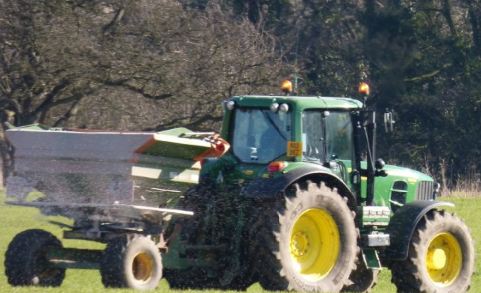



Do Strong Land Prices Help or Hinder Farming?
ANALYSIS – Land values are underpinning much of UK agriculture in an era of huge market volatility but there may be a detrimental effect further down the line.Many in farming fear that spiralling land values in Britain are restricting young entrepreneurial farmers from setting up and growing businesses as loss making farms grow in value.
Speaking at the Livestock event in Birmingham this week, farm business consultants Andersons spread the message that income on farms ‘bears no relation’ to land prices.
“If you look back over the last decade, most farms have made a miniscule margin, but farms that have sat and covered costs for ten years have seen the value of their business double,” said Mike Houghton, an adviser at Andersons.
He added that investors with money in the bank are driving land prices, not the profitability of farming.
Aspiring farmers are having obstacles placed in their way while there are some very inefficient farms ‘dragging’ industry figures down, said Andersons head of business research Richard King.
He said that farmers should target what they are best at, reimagining their operation by starting with a ‘blank page’ if needs be.

“There should not be a compulsion to farm every acre for the sake of it,” said Mr King. “Many livestock farms have developed over time to include more add-on enterprises.”
The reality for budding young farmers is that one million pounds buys very little, according to Simon Haley of Reading Agricultural Consultants.
He suggests looking at more progressive share-farming agreements in which retiring farmers ‘hand-over’ the working elements of a farm.
“Keeping livestock or machinery on the farm after retiring and then renting it to a young farmer is frequently done in New Zealand,” he explained.
“What we need to do here is match opportunities – there is loads of land in the UK that could be used more productively.”
However, he admitted that, for established farmers, strong land prices aids borrowing from banks, allowing expansion and economies of scale.
His firm is seeing a trend for high bids for small pockets of land, especially from nearby farmers wanting to extend ring-fenced land and from the equine sector.
Local land and ring-fenced plots means logistical benefits for arable units and better biosecurity for livestock farmers, he explained.
For outsiders to farming trying to break in and small farmers trying to expand, renting is the only realistic option, according to Tenant Farmers Association (TFA) Chief Executive George Dunn.
“Buying land at £10,000 to £12,000 per acre is difficult to justify at a rate of return of one per cent,” said Mr Dunn.
“People say land price reflects rent, and while this can indirectly be the case, it is not true.”
He said that, in the main, farmers that can afford to buy land do so because of tax reasons or because they are running a large operation and can spread the cost of buying.
However, high prices for land acquisition result in higher competition for rented plots when they become available, he added.
“A standalone tenant may be looking to pay £150 to £160 per acre for arable ground but a large owner occupier without debt may be prepared to pay up to £270 per acre.”
He said that the average length of a Farm Business Tenancy at four years is not long enough to allow young tenants to plan business strategies.
“We need longer tenancies that allow businesses to cope with volatility and ride the rough patches.”
“Longer term agreements allow businesses to do well in some years and not so well in others," he concluded.
Michael Priestley
News Team - Editor
Mainly production and market stories on ruminants sector. Works closely with sustainability consultants at FAI Farms



